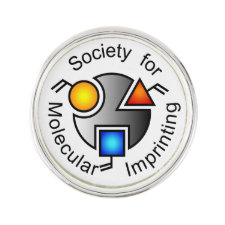
Authors: Hong CC, Lin CC, Hong CL, Chang PH
Article Title: Enhanced anesthetic propofol biochips by modifying molecularly imprinted nanocavities of biosensors.
Publication date: 2012
Journal: Biomedical Microdevices
Volume: 14
Issue: (3)
Page numbers: 435-441.
DOI: 10.1007/s10544-011-9620-9
Abstract: This paper presents enhanced performance of anesthetic propofol biosensors by modifying molecularly imprinted nanocavities of biosensors. In this work, the relationship between molecularly imprinted nanocavities and performance of molecularly imprinted polymer (MIP) films is investigated. The morphological control of imprinted nanocavities on molecularly imprinted biosensors is done by adjusting polymer composition and polymerization process. The newly developed MIP biosensors are characterized using our developed microfluidic biochips and optical microsystems. Experimental results show that the sizes of molecularly imprinted nanocavities were reduced to 10 to 14 nm from 10 to 25 nm. The roughness of the MIP film surface was reduced to 2.5 nm from 6.6 nm. Smaller imprinted nanocavities have better molecular separation performance. The specificity and linearity of the anesthetic biosensors could be enhanced by adjusting morphology of imprinted nanocavities. The linearity and the sensitivity of the microfluidic biochip with an improved on-chip MIP biosensor have been enhanced from 0.9341 to 49.5 mV/mm 2 ml/μg, respectively, to 0.9782 and 176.9 mV/mm 2 ml/μg. The anesthetic propofol biosensor presented in this study is applicable to numerous fluidic-based disposable biochips.
Template and target information: propofol, 2,6-diisopropylphenol
Author keywords: Microfluidic biochip, Molecular imprinted nanocavity, biosensor, anesthetic propofol



Join the Society for Molecular Imprinting

New items RSS feed
Sign-up for e-mail updates:
Choose between receiving an occasional newsletter or more frequent e-mail alerts.
Click here to go to the sign-up page.
Is your name elemental or peptidic? Enter your name and find out by clicking either of the buttons below!
Other products you may like:
 MIPdatabase
MIPdatabase









